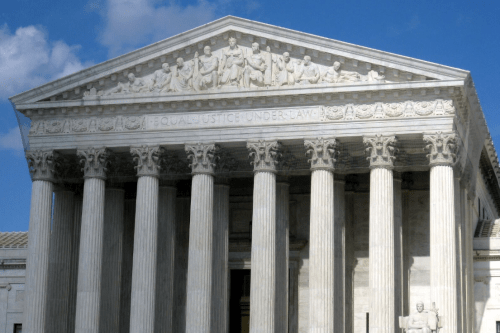Media coverage of the Islamic State has focused on the group’s grotesque use of violence and archaic governance style. Less attention has been paid, however, to the institutions that make those practices possible—institutions that lend the group legitimacy, at least in the eyes of supporters, as a sovereign state. In her new Brookings Analysis Paper, “The legal foundations of the Islamic State,” Mara Revkin argues that legal institutions play a critical role in the Islamic State’s state-building project. Those structures help the group take and keep territory, as well as provide a measure of accountability to the people living under its rule.
Lesser evil?
Revkin writes that “the Islamic State has attempted to ingratiate itself with civilians by claiming that its legal system is comparatively more legitimate and effective than the available alternatives.” The Syrian and Iraqi governments, Revkin explains, are often perceived as being highly corrupt and ineffective. The Islamic State is able to gain civilians’ favor by arguing that its political and legal institutions are more legitimate than those of the Syrian and Iraqi governments or rival armed groups. She adds: “some Syrians and Iraqis seem to prefer the legal system of the Islamic State to the available alternatives not because they agree with its ideology, but simply because they regard it as the lesser evil.”
The Syrian and Iraqi governments…are often perceived as being highly corrupt and ineffective.
Revkin writes that for the Islamic State, shariah law is “the only legitimate basis for governance.” In cases where shariah fails to address modern-day problems, she explains, religiously legitimate authorities appointed by the Islamic State—such as military commanders, police officers, and the caliph himself—can issue legal decisions as long as they do not conflict with the divine rules of shariah or harm the welfare of the greater Muslim community. Alongside this is a system of rules and regulations to “govern civilians, discipline its own officials and combatants, and control territory” in areas of rights and duties, behavior, property, trade, and warfare.
Making the state possible
Legal institutions help the Islamic State advance three main state-building objectives, in Revkin’s view:
- First, they support the Islamic State’s territorial expansion by “legitimizing [its] claims to sovereignty, justifying the expropriation of the property and land of enemies, and building goodwill with civilians.”
- Legal institutions also allow the Islamic State to enforce compliance and accountability of its own members and maintain internal control and discipline. Revkin describes various types of punishments the Islamic State uses to discipline its own members—these punishments are important, she writes, because “no government can establish itself as legitimate and sovereign without policing the behavior of the people who are responsible for implementing its policies.”
- Finally, Revkin explores the legal institutions surrounding the Islamic State’s tax policies, which are “critical to financing the Islamic State’s governance and military operations.” Courts and judges, she explains, are crucial to “administering and legitimizing” taxation and justifying “economic activities that might otherwise resemble theft.”
Weaknesses in the system
Although the Islamic State claims to have legitimate governing authority, based on a defined legal system, that system faces vulnerabilities. Revkin writes, for instance, that reports of corruption and extra-legal violence are “threatening the organization’s long-term sustainability and undermining its ability to win the trust and cooperation of civilians.”
Amid recent signs that the group is losing strength, Revkin argues that it’s struggling to maintain its own moral standards. To further weaken the Islamic State, she recommends working to undermine those institutions. The trouble is, as Revkin points out: “the Islamic State came to power largely by exploiting the weakness and illegitimacy of existing institutions” in Iraq and Syria. Thus, a sustainable plan for ultimately destroying the organization must also involve strengthening political and legal institutions in those countries.
The Brookings Institution is committed to quality, independence, and impact.
We are supported by a diverse array of funders. In line with our values and policies, each Brookings publication represents the sole views of its author(s).




Commentary
What are the legal foundations of the Islamic State?
July 26, 2016